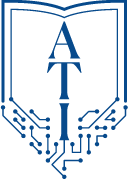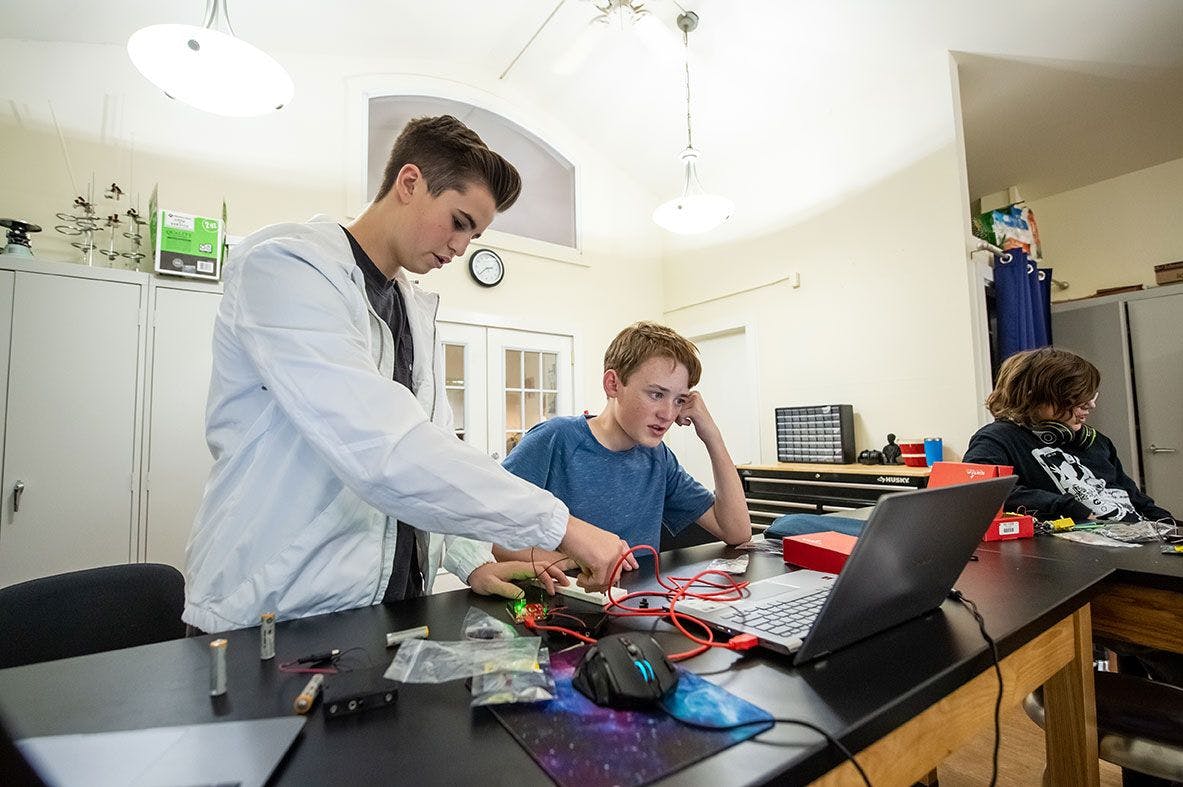A Culture of Knowledge
We’ve been working hard at ATI this summer to launch our adolescent MACTE training: a two-year diploma program for educators looking to learn and apply the Montessori method in secondary school. We’re building the training in part as a simulation: our guides and learners are coming to California next week to become students in a mock-adolescent program. That means they’ll lead morning meetings; sign up for campus jobs; collaborate during open work cycle; join an intentional place-based venture to a nearby canyon. As a result of this work, I’ve been thinking a lot about what is essential in a Montessori middle and high school program; how it differs from progressive educational programs; how it might differ from Montessori at earlier ages.
In early childhood, we talk a lot about the value of work. Beginning almost at birth, there’s an emphasis on supporting and enabling a child to do the work of self-creation. To quote Montessori, “It is not that man must develop in order to work, but that man must work in order to develop.” The infant who tracks a mobile, or reaches for a rattle is doing work. The toddler who is struggling to put on her shoes, the children’s house student tracing sandpaper letters. The recognition of work as noble, essential—of not just utilitarian benefit but profound spiritual value—is one of the key advancements of Montessori.
So what changes in adolescence? In some ways, nothing. The value of work is still absolutely core. We still talk extensively about what it means to build a culture of work. One of our core values at ATI is “love of work.” The ability to concentrate, to choose a task freely within the environment, to engage with different materials or areas of exploration. The older student may be doing more conceptual and less manual work, or may be doing more work out in the world (entrepreneurship or internships) rather than in the classroom, but work as a central value remains. A culture of work is a culture that attends to the details, emphasizes and values effort, strives for perfection—these things change in character but not in kind as the student progresses from the checkerboard to calculus.
But there is a difference in emphasis in secondary school—really, starting even in Children’s House. We see more clearly that a culture of work is one side of the coin, and start talking about a culture of knowledge in addition to work. We start talking about love of learning, about curiosity, about the joy of asking questions and developing deeper perspectives on the world. Work is fundamental. But work, properly understood, is effort to be in contact with reality. It is to make the habitual choice see and to understand, as well as to creatively reorganize the world and build great things based on what you see and understand. So for a culture of work to actually help develop the capacity to live well, it has to exist in union with a culture of knowledge.
What does it mean to create a culture around knowledge, around knowing stuff? How do we develop and support the authentic habit of intellectual curiosity? Put simply, we have to value the knowing—we have to value the quest for truth. In a culture of knowledge, it matters to students that they get to the bottom of things; they want to know what’s right, what’s true, objectively, in the world. They operate on the assumption that there is a world out there, independent of them, and they want their understanding to correspond to the way things actually are. When students internalize a culture of knowledge, regardless of the topic, they ask questions and search for evidence. They care. They get excited to learn something new; they celebrate new interests or achievements in their friends; they appreciate it when they realize they misunderstand something because it is a chance to get it right. They connect what they’re learning to their own lives, and the wider world.
But a culture of knowledge is not the default. In many ways, it can feel at odds with respecting a student’s existing opinions.
Let me give you an example. I remember observing a discussion at one ATI campus when, in contemplation of a certain author, a student exclaimed, “I can’t believe you’re quoting him, everyone knows he’s a fascist!”
Imagining it’s an author you haven’t read, consider for a moment how you would respond—either as the guide in the room, or in a conversation with friends. Would your first inclination be to honor the student’s assertion, and make him feel comfortable? Or to dismiss the comment and proceed with your plan? Would you feel insecure about whether he might be right, and what it means?
Abstracting away from the particulars of any given author, your response will be a reflection of your values. As Ghandi put it, “action expresses priorities.” A guide might value community togetherness above all—making students feel heard, accepted, and safe. And if that value is primary in their mind, they may respond with a reminder that “every opinion is valid,” or “we agreed as a community to talk in a respectful tone.” They may skillfully turn the conversation to a less controversial topic.
But in this instance, the community had built a culture of knowledge. The community was embracing, as natural and almost automatic, a quest for truth. So the guide modeled that culture exceptionally, replying in a tone of curiosity: “Really? Why do you say that?” Before the guide had responded, the other students in the circle were nodding, having accepted the declarative condemnation of the writer as “fascist.” But their minds activated, they began to engage: “Have you read his books?” (No one had.) “What does it mean to be a fascist?” (Most people weren’t sure.) They began trying to understand the nature and meaning of the claim, its evidence for and against, and its implications for the discussion. The end result: both the initial speaker and the class went deeper, thought more critically, adopted an evidence-oriented mindset. The statement, they concluded, could be neither corroborated nor contradicted because they did not know enough.
This is the power of a culture of knowledge. It puts students on the premise, the intent, to correspond to actual fact. It expresses the belief in a rational world that is comprehensible. An off-hand comment that can lead to a reading group for a controversial author; a self-study on cultural or political ideologies; an exploration of the exhibits demonstrating a scientific or historical claim; a class dedicated to understanding the work and themselves a little better. Or even just a moment of greater self-awareness, in which one student’s confidence in her conclusions is questioned, paradoxically resulting in a deeper confidence in her mind’s ability to know.
A classroom that doesn’t value knowledge won’t embrace the quest for truth, and ultimately doesn’t really believe in the potential of the child to understand the world. Whatever slogans there may be about curiosity and love of learning, these things only actually exist if they are expressions of a love of knowledge. Imagine the child who emerges from the secondary school that supports a culture of work, but without a culture of knowledge, and who as a result becomes an adult who values work but not knowledge. She may have an exceptional work ethic; she may be goal-directed and diligent; she may have the ability to focus intensely and produce at a high level. Maybe. But even if she somehow manages to achieve this, she does not dream. She does not experience the joy of knowing she is capable of understanding and shaping her life. She does not change the world. Because that requires that next step: the value of knowledge itself; the deep, internal conviction that knowledge matters, and it matters in the world, and it is critically important to know the truth of things.
The unstoppable person is that person who achieves the unity of the two: who emerges from school having a deep-rooted capacity to do and love doing work, and who is on a quest for truth, who internalizes the pursuit of knowledge as the most fundamental type of work to be done. This is the person who can contemplate the nature of things, dream of a new world, and with dedication and focus, do the hard work of making it come about. A person who combines, you might say, the values of both thought and industry.
That’s what we’re thinking about this week at ATI, and I hope that all of you have the opportunity to learn something wonderful this week, and that it sets your soul on fire. I’ll leave you with one of my favorite quotes on the subject, the one I have taped up above my desk:
“The best thing for being sad is to learn something. That’s the only thing that never fails. You may grow old and trembling in your anatomies, you may lie awake at night listening to the disorder of your veins, you may miss your only love, you may see the world about you devastated by evil lunatics, or know your honour trampled in the sewers of baser minds. There is only one thing for it then—to learn. That is the only thing which the mind can never exhaust, never alienate, never be tortured by, never fear or distrust, and never dream of regretting. Learning is the only thing for you. Look what a lot of things there are to learn. T.H. White”
Laura Mazer is the SVP of Programs at Higher Ground Education, where she enjoys thinking about the scope and sequence of the universe.
Experience school on your terms
Join a school community designed to support your education with coaching, small classes, and a commitment to our core values. Engage in deep study and personal exploration as a student at ATI.
Learn more about our:
Visit Higher Ground Education to learn more about our mission to make learner-centered education the mainstream.

